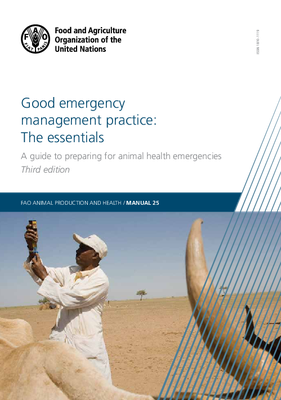Good emergency management practice: The essentials
Animal health emergencies arising from infectious diseases and other threats have a high potential to spread rapidly within a country or around the world. These events appear to be increasing as a result of growing animal populations, their concentration and market intensification, human and animal movements, and global trade. This trend is enhanced by the management capacity issues of animal health services as has been evident in the difficulties faced during the COVID-19 pandemic for field service delivery. Animal health emergencies globally impact the food security and livelihoods of nearly half of the 900 million people living in poverty who depend on livestock to survive. They can, therefore, significantly impede progress towards achieving the sustainable development goals. When high impact emerging and zoonotic diseases are involved, early and coordinated responses can prevent the next pandemic.
https://biodiversitylinks.org/learning-evidence/one-health-evidence/one-health-evidence-inbox/good-emergency-management-practice_-the-essentials.pdf/view
https://biodiversitylinks.org/learning-evidence/one-health-evidence/one-health-evidence-inbox/good-emergency-management-practice_-the-essentials.pdf/@@download/image/image.png
File
Good emergency management practice: The essentials
Author(s):
François Gary, Mathilde Clauss, Etienne Bonbon, Lee Myers
Publication Date: 2021
DOWNLOAD FILE
Animal health emergencies arising from infectious diseases and other threats have a high potential to spread rapidly within a country or around the world. These events appear to be increasing as a result of growing animal populations, their concentration and market intensification, human and animal movements, and global trade. This trend is enhanced by the management capacity issues of animal health services as has been evident in the difficulties faced during the COVID-19 pandemic for field service delivery. Animal health emergencies globally impact the food security and livelihoods of nearly half of the 900 million people living in poverty who depend on livestock to survive. They can, therefore, significantly impede progress towards achieving the sustainable development goals. When high impact emerging and zoonotic diseases are involved, early and coordinated responses can prevent the next pandemic.



